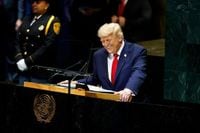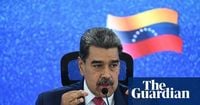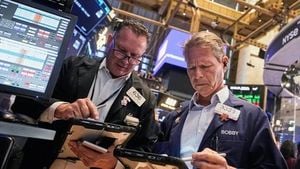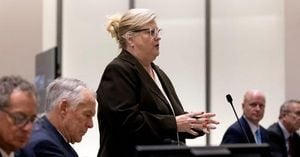Venezuela is once again at the center of a dramatic showdown with the United States, as President Nicolas Maduro signals his readiness to declare a state of emergency in response to what he calls mounting aggression from Washington. The latest escalation follows a series of deadly U.S. military strikes on boats suspected of drug trafficking, which have left at least 17 Venezuelans dead and stoked fears of a broader conflict in the Caribbean.
On September 30, 2025, Maduro addressed the nation in a televised speech, warning, "Today the consultation process began ... to declare a state of emergency in accordance with the constitution and protect our people, our peace, and our stability if Venezuela were attacked by the American empire, attacked militarily." According to Reuters and France 24, this move would empower Maduro to mobilize soldiers throughout the country, suspend basic rights, and place the military in charge of public services and the vital oil industry. The decree, if enacted, would be valid for 90 days with the possibility of renewal for another 90 days.
The sense of crisis has been amplified by the U.S. military’s largest deployment in the Caribbean in years. President Donald Trump has sent eight warships, a nuclear-powered submarine, and F-35 stealth fighters to waters off Venezuela’s coast, with additional F-35s stationed in Puerto Rico. The official line from Washington is that these moves are part of an anti-drug operation aimed at stemming the flow of illegal narcotics into the United States. Trump himself, speaking to the press, declared, "We had a lot of drugs coming by water. We don't have any boats on the water. We hit a number of boats. Since we did that, we've had absolutely no drugs coming into the country via water because it was lethal. Now we're going to look very seriously at cartels coming by land." (Latin Times)
However, both United Nations experts and international scholars have raised alarms about the legality of the U.S. strikes. The attacks, which have sunk at least three boats and killed 14 to 17 people, are being described as "extrajudicial killings" of individuals who were never indicted in court. Vice President Delcy Rodriguez did not mince words, calling the U.S. justification for the strikes "a big lie" and alleging that the true motivation is to seize Venezuela’s vast natural resources. "It has only one purpose and objective: the reserves of oil, gas, gold, minerals [and] the biological wealth that Venezuela has – and which they need for this new era in which the US government declares war on the entire planet," Rodriguez charged, as quoted by The Guardian.
Rodriguez went further in her remarks to foreign diplomats, stating that the decree would give Maduro "special powers" as head of state to act in matters of defense and security if the U.S. "dares to attack our homeland." The special powers would allow the president to activate all citizen security plans, mobilize the militia, and close land, sea, and air borders to safeguard the nation’s territorial integrity. "We will never surrender our homeland," she vowed, adding, "Those who openly call for an invasion, cannot consider themselves Venezuelan."
Despite the tough rhetoric, there has been some ambiguity regarding the immediate enactment of the emergency decree. While Rodriguez announced that Maduro had signed the document, a government source told AFP that the decree had not yet been officially signed. "The vice president presented the document to show that everything was ready and that the president can decree it at any time," the source clarified.
The U.S. escalation has been met with a flurry of diplomatic and military maneuvers in Caracas. According to Reuters, Venezuela’s armed forces have been conducting training exercises with volunteer militia members, teaching civilians to handle weapons in preparation for what officials describe as a possible U.S. incursion. There are now 284 "battlefront" locations designated across the country, a sign of how seriously the Maduro government is taking the threat.
Meanwhile, the Trump administration appears divided on its next steps. Reports from The New York Times and NBC News indicate that several top officials, including Secretary of State Marco Rubio and CIA Director John Ratcliffe, are pushing for more aggressive action to oust Maduro, whom they accuse of running a drug-trafficking operation that poses an "imminent threat" to the United States. The U.S. Army has reportedly drawn up plans for air raids and even land strikes inside Venezuela, though these have yet to receive White House approval. NBC’s sources suggest that drone strikes targeting alleged drug traffickers could be on the table "in the next several weeks."
Maduro, for his part, has attempted to open lines of communication with Washington amid the rising tensions. Earlier in September, he sent a letter to President Trump offering to engage in direct talks and emphasizing his desire for a "historic and peaceful" relationship between the two countries (Reuters). In his recent address, Maduro also claimed to have received "good feedback" from a private conversation with UN Secretary-General Antonio Guterres, who reportedly expressed "astonishment at an unprecedented escalation, an extravagant escalation, which, for almost seven weeks, was announced and launched against a peaceful country, Venezuela." The United Nations has not confirmed these remarks.
The international community remains deeply divided. While the U.S. and some allies view Maduro’s government as illegitimate and accuse it of corruption and human rights abuses, many in Latin America and beyond are wary of Washington’s military interventions and question the legality and morality of the recent strikes. Legal experts have echoed concerns about "unlawful extrajudicial killings," and some leaders in the region have warned that the U.S. campaign could spiral into a much broader conflict with "catastrophic" consequences for Venezuela and the Caribbean as a whole.
As the standoff intensifies, ordinary Venezuelans are left to grapple with uncertainty and fear. The threat of military action, the potential suspension of civil rights, and the prospect of further economic hardship hang over a nation already battered by years of crisis. Rodriguez, seeking to rally public support, declared, "Venezuela is united in the defence of our country." Yet the shadow of foreign intervention and the specter of authoritarian emergency powers have left many wondering what the next chapter will bring.
With the world’s eyes fixed on Caracas and Washington, the coming weeks could prove pivotal—not just for Venezuela’s government, but for the entire region’s stability and the future of U.S.-Latin American relations.





